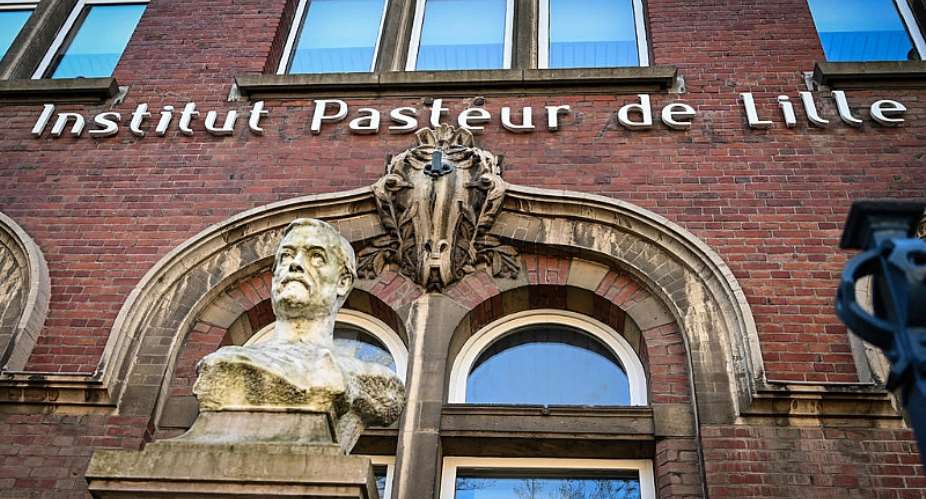The Pasteur Institute's announcement that it is to stop further development of one of its potential Covid-19 vaccines, coming on the heels of Sanofi's announcement that its vaccine will be delayed, has raised questions about medical research in France.
The Pasteur Institute, and the US pharmaceutical giant Merck Sharp & Dohme, which had bought the manufacturing license, dropped the vaccine after disappointing trial results. They say say they are pursuing research on other Covid-19 vaccines.
The announcement comes after French pharmaceutical giant Sanofi announced in late December that its Covid-19 jab would not likely be ready before the end of 2021, at best.
There is dismay in France at the failure of home-grown efforts to find a vaccine, and questions are being asked about whether it is due to simple bad luck or the result of an inadequate research ecosystem.
Slow research funding
One could be that the ANR, the government's research funding agency, seems slow to disburse funds.
The Pasteur Institute, named after the man who created the first-ever vaccine in 1885, is a non-profit foundation, a leading research body, with about 2000 researchers. Yet Research Director, Camille Locht, told Le Figaro newspaper, that the Institute had to wait several months before the ANR finally released funding in June for the vaccine's costly clinical trials.
A report last week for the French think tank Terra Nova by Anne Bucher, the European Commission's Director-General for Health, also concluded that public financial support for vaccine research and development was a problem.
Bucher noted that US funding for vaccine research had increased dramatically since 2000, while European investment had fallen.
The US government, under ex-president Donald Trump, mobilised ten billion dollars for its Operation Warp Speed initiative to support vaccine research, while the EU put together only three billion dollars.
Job cuts
Sanofi, as a commercial company, has had different problems. It is still developing its vaccine in partnership with the British pharmaceutical company GSK Glaxo, and will begin new trials next month using a higher dose of antigens.
But trade unions claim that Sanofi's lack of progress on a Covid vaccine so far can be linked to a wave of job losses.
The company disagrees, insisting that the 400 prospective redundancies announced last week in the Research and Development department do not include jobs in the field of Covid research.
However, MP Francois Ruffin of the far-left France Unbowed party is not so sure. Sanofi, and successive governments are responsible, he says, for smashing a technological and healthcare asset.
"I want a French vaccine, with French technology," he told the BFM news channel in mid-January. "Why haven't we got one?"
Biotechnology
Economist Frédéric Bizard, who specialises in the field of medicine and health, told RFI that France lagged other major countries in the growing field of biotechnology.
French research is often based on its strengths in older technologies, he said, "but these are no longer at the forefront… Biotechnology calls the shots now."
One such biotech firm, France's TheraVectys, is already working with the Pasteur Institute on another potential Covid-19 vaccine.
Meanwhile, in a highly controversial move, the French government has asked Sanofi to manufacture doses of the vaccine produced by the rival pharmaceutical company Pfizer with BioNTech.
Sanofi says it is looking into the feasability of this idea, but stresses that manufacture of the Pfizer-BioNTech vaccine could interfere with Sanofi's plans to do further trials on its own potential vaccine.





 Akufo-Addo commissions Phase II of Kaleo solar power plant
Akufo-Addo commissions Phase II of Kaleo solar power plant
 NDC panics over Bawumia’s visit to Pope Francis
NDC panics over Bawumia’s visit to Pope Francis
 EC blasts Mahama over “false” claims on recruitment of Returning Officers
EC blasts Mahama over “false” claims on recruitment of Returning Officers
 Lands Minister gives ultimatum to Future Global Resources to revamp Prestea/Bogo...
Lands Minister gives ultimatum to Future Global Resources to revamp Prestea/Bogo...
 Wa Naa appeals to Akufo-Addo to audit state lands in Wa
Wa Naa appeals to Akufo-Addo to audit state lands in Wa
 Prof Opoku-Agyemang misunderstood Bawumia’s ‘driver mate’ analogy – Miracles Abo...
Prof Opoku-Agyemang misunderstood Bawumia’s ‘driver mate’ analogy – Miracles Abo...
 EU confident Ghana will not sign Anti-LGBTQI Bill
EU confident Ghana will not sign Anti-LGBTQI Bill
 Suspend implementation of Planting for Food and Jobs for 2024 - Stakeholders
Suspend implementation of Planting for Food and Jobs for 2024 - Stakeholders
 Tema West Municipal Assembly gets Ghana's First Female Aircraft Marshaller as ne...
Tema West Municipal Assembly gets Ghana's First Female Aircraft Marshaller as ne...
 Dumsor is affecting us double, release timetable – Disability Federation to ECG
Dumsor is affecting us double, release timetable – Disability Federation to ECG
